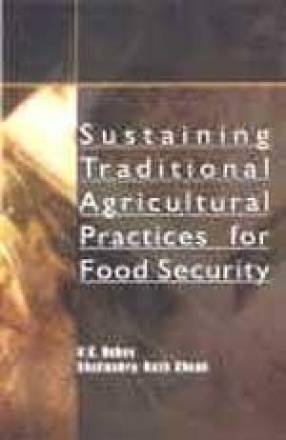Sustaining Traditional Agricultural Practices for Food Security
Synopsis
This book has some unique features. It contains (i) the self-questioning of scientists who had long been used to the reductionist method of science and had become the vehicle of propagating chemicalisation of agriculture as "Scientific Technology"; (ii) Penetrating observations of some social activists on the deleterious effect of chemicalised farming and (iii) the stories of path breaking efforts in alternative agriculture in pursuit of organism. The very first chapter of the book poses, perhaps for the first time, questions of fundamental importance in social philosophy and economics which impinge on agricultural technology and sustainability of both the production system and society. The book also discusses (i) the reasons which, after three decades of imitation of the West, have induced the current search for sustainability; (ii) the core principles of sustainable agriculture; (iii) India's traditional technology of agro-meteorological predication; (iv) India's indigenous irrigation system which bore the stamp of farmer's creativity and most fruitfully served agriculture need for centuries without causing any adverse ecological effects; (v) the packages of practices specific to each cultural zone that emerged, evolved and has largely continued to this time; (vi) the crop-specific farming technologies; (vii) the indigenous animal husbandry technologies. At the end it presents the perspective of research for scientists who now feel inclined to base on, and improve upon, traditional farming technologies. This combination gives the book a uniqueness. There is a slight difference between the endogenous and the indigenous. Endogenous is what originated within. Indigenous is what, irrespective of its origin, developed within for long and became natural to the environment. In Indian agriculture, indigenousness does not necessarily refer to naturalness of the vast landscape of India or most part of it. This is because agriculture is specific to each agro-climatic zone and India encompasses several distinct agro-climatic zones. Hence, indigenous agricultural technology means local technology. It also implies that the borrowings of techniques were mostly from other agro-climatic zones within India for trial and adaptation to the intended culture zone. Since harmony with nature has been pervasive in Indian culture, the agricultural techniques were all nature-harmonic. It is this nature-harmony, that was, and is, the basis of sustainability. India has been practising agriculture, perhaps for more than forty centuries, still there was no erosion of its production base; and the productivity was high till the eighteenth century, there was, therefore, no occasion for concern about sustainability ever in the past. It only after four decades of chemicalised monocultural farming, there is now a search for sustainability, it is because what was practiced in the name of "Green Revolution" was most eco-destructive in the name of "Scientific Technology"; it was also most unscientific because it ignored the air-water-soil surface interaction, the soil and soil macro-cum-soil micro-organism-plant and animal interaction. Bypassing the soil, it sought to infuse fertility into plant. This was like trying to fertilize a womb by means which gravely damaged the women's health. It could not but be unsustainable.
Read more
47.70
42.93
$
53.00 $
Free delivery Wolrdwidе in 10-18 days
Ships in 1-2 days from New Delhi
Membership for 1 Year $35.00
Get it now and save 10%
Get it now and save 10%
BECOME A MEMBER








Bibliographic information
Shailendra Nath Ghosh